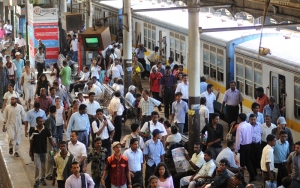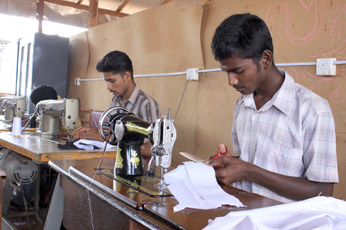
29 March 2014

Rejects pressures of Pillay and the forces of resurgent colonialism
It is a saddening situation in the world, when countries that claim to have a commitment to protect human rights and ensure accountability by states on matters of human rights, and humanitarian laws and traditions, demonstrate a contemptible ability to gang up against a country that has defeated terrorism; and is seeking to achieve reconciliation after all the suffering and divisions caused by three decades of the most savage and ruthless form of terrorism the modern world has seen.
The militarily strongest electoral democracy in the world and the land known as the Mother of Parliaments, have joined others who claim to be democrats with varying standards of its purpose and practice, to cause much pain to the people of Sri Lanka, the oldest functioning democracy in Asia. This happened in Geneva on Thursday when 23 of 47 members of the United Nations Human Rights Council adopted a resolution that sought to take Sri Lanka to task on issues of human rights and accountability that relate in essence to the task it carried out in the defeat of terrorism. Whether this really was a majority of world opinion is questionable because in addition to the 12 nations that opposed the move, 12 others abstained. This is not arithmetical jugglery, but the simple fact that those who opposed the resolution and those who were not moved enough by it to wholly support it comprised the larger membership of the UNHRC. It is the clear folly of “the winner takes all” principle in electoral politics.
Led by the United States that is never regretful of its many violations of human rights, accountability, as well as the sovereignty and territorial integrity of states, and backed by the United Kingdom whose record on these issues are hardly better than its trans-Atlantic ally and leader, the world is now being forced to face up to the rise of a new imperialism and resurgent colonialism.
What Sri Lanka is now faced with is a threat that holds good for any smaller or weaker nation that is unable to match the machinations of stronger states that churn out shibboleths of commitment to the principles of democracy and all the respect that is attached to it.
Some relief
There was some relief to the sadness arising from this move initiated by the US and UK, when India, the world’s largest electoral democracy, which voted against Sri Lanka on two previous votes on similar resolutions, and was supportive of it at the early stages, decided to abstain at the vote, giving a message that it was not wholly ready to join the promoters of this new imperialism and resurgent colonialism. It showed disagreement with the strategies of the self-appointed policeman of the world in Washington, and its own old colonial master in the United Kingdom.
The vote against Sri Lanka in Geneva has made a mockery of declared concern for true reconciliation among its people. It reveals a sham interest in healing the wounds of war in this land, and raises a highly questionable demand for accountability on human rights and humanitarian values, which far exceeds adherence to such policies by any of the sponsors of this revengeful resolution.
The genuine and rising concern in Sri Lanka today is about the extreme haste in seeking an international investigation into the wide ranging, questionable and surprising allegations about war crimes and violations of human rights, during the final stages of the military operations to defeat the forces of terror. These were forces that caused so much, pain, suffering and damage to our people and nation – irrespective of community – through the decades of brutality that ended in May 2009. They were identified and described by none other than the US State Department, as being the most ruthless terrorist organization in the world. The US Secretary of State John Kerry, currently being twisted both his words and thoughts on the situation in Crimea, gives a clue to the lack of interest in the truth in US thinking on international affairs of importance today.
What the promoters of duplicity in Geneva wholly ignored, or refused to consider, is that the military operation to defeat terrorism here had a most humanitarian purpose. The country and people have obtained peace and are seeking to turn the pages from a brutal period, to those of tranquility and understanding among people. The examples of similar violent conflicts in other parts of the world would show that the process of reconciliation, the coming together of former rivals in combat, cannot be hurried, to suit the interests of outside forces – however powerful and with whatever hidden agenda they may have. The ignoble haste shown in seeking an international investigation into matters of a genuine national nature, gives the impression of contemptible impatience, at a time and in a situation when patience is what is most called for.

Utmost patience
Sri Lanka is a land where the four major religions of the world meet. The teachings of these faiths show us that while armed conflict is best avoided, it needs a period of utmost patience to arrive at the ultimate goal of understanding and reconciliation after such a conflict, and bloodier and prolonged the conflict, the longer the time for reconciliation. This is not achievable with haste and impatience, which seems to be the trademark of Navi Pillay – the High Commissioner for Hasty Castigation & Renewed Conflict, rather than Human Rights.
Patience in the search for reconciliation is part of a rich Asian tradition, where human rights and humanitarian values have been strongly rooted, long before they became a fad and often a political tool, in the West today. The haste of diplomats who are better at driving wedges between people than uniting them, as we see in current world developments, especially in Europe, is hardly the stuff to deal with the ruthless nature of the conflict that was seen in this country. Such undignified haste can be satisfying to those with the Obama Joy of usurping the role of the World’s Policeman and the Cameron pleasure of imagined imperial greatness. India’s abstinence in the final vote showed it still valued Mahatma Gandhi’s patience and courage in the battle against colonialism.
It needs the patience and forgiving of the wise to achieve genuine reconciliation, that is the goal of Sri Lanka; and certainly not even the distant goal of the manipulators of separatist terror, who have now become the manipulators of electoral politics among shaky leaders in the West – namely the pro-LTTE Tamil activists, both in lay and clerical garb, who have never been asked any questions about the terror they unleashed in this country, especially on people of their own Tamil community.
Those who were determined to vote against Sri Lanka in Geneva, despite all their claims about the search for reconciliation, have made no efforts to learn of, or blinded themselves to, the progress in implementing the Report of the Lessons Learnt and Reconciliation Commission, admitted even by this country’s vehement critics, as being the path to reconciliation.
Much has been done already in this regard, and one can hardly deny that much more remains to be done, despite Navi Pillay and all who trail her on the path of revenge, and not of reconciliation.
These are the resurgent forces of terror, licking the wounds of defeat, and using the manipulative capabilities within the UNHRC to drag Sri Lanka into a new phase of conflict. Such developments can only satisfy the goals of the forces of new imperialism and resurgent colonialism, at a time when Asia is on the rise, and strategies are being worked out to gain new footholds in this region.
Twists and turns
Sri Lanka that has suffered the brutality of terrorism has the most need for reconciliation. This is not achieved by diplomatic frolicking in Geneva, or the demands of yet unrepentant separatists who promise the West and India of gains in an un-reconciled Sri Lanka.
The twists and turns of diplomacy in Geneva do little to heal the wounds of terror that the people here have suffered. It asks no questions about the children, from the Tamil community, who were forced to carry arms for the terrorists. The prancing in Geneva raises no questions about how Tamil women were turned into suicide bombers, often in a brainwashed belief in “liberation” under a ruthless dispenser of savagery. The movers and shakers in Geneva have never asked about the beginnings of terrorism in Sri Lanka, while being so eager to probe what happened at its ending.
This determination to be interested only in the final phase of the defeat of terrorism, the like of which others wielding much larger power have failed to achieve, conveniently seeks to keeps hidden and entire story of horrendous interference in this country by its closest neighbour, India, in the training, arming, transporting and funding of the forces of terror – until it claimed the once prime minister, son of the woman prime minister who thought out the strategy of terror to destabilize Sri Lanka. It matters little today to the Indians, who use Tamil ethnicity to gain political mileage, and may even be ready to bow and bend to please the US and UK, that both of these national leaders were the victims of revengeful terror, as were many Sinhala and Tamil leaders in Sri Lanka.
Why is this so-called “world hunt” for war crimes, human rights violations and accountability, etc., confined to the final days of the conflict when the forces of terror were defeated, with the situation after that being added, and never looking back to what happened before that necessary defeat? Is there a biblical or any other teaching Navi Pillay, Desmond Tutu, Vaiko and such detractors of Sri Lanka may know of, against looking back to learn the truth of terror and savagery?
The forces that were ranged against Sri Lanka in Geneva, despite their loud claims for reconciliation and accountability, have discarded the essential quality and clear appearance of neutrality, for reconciliation to succeed. They have failed to grasp the reality that reconciliation cannot succeed when there is outside pressure, whether diplomatic or otherwise; pressure that comes even with the claims of the best of intentions. Sri Lanka should remain committed to reconciliation without such pressure. There should also be a commitment to reveal all the brutality of terrorism that we suffered, painful as it may be, and the external forces that caused its rise here. This is needed to cleanse our society of the horrors of terrorism, including its good neighbourly origins, which the Western manipulators in Geneva have decided to cover up forever.
- See more at:




